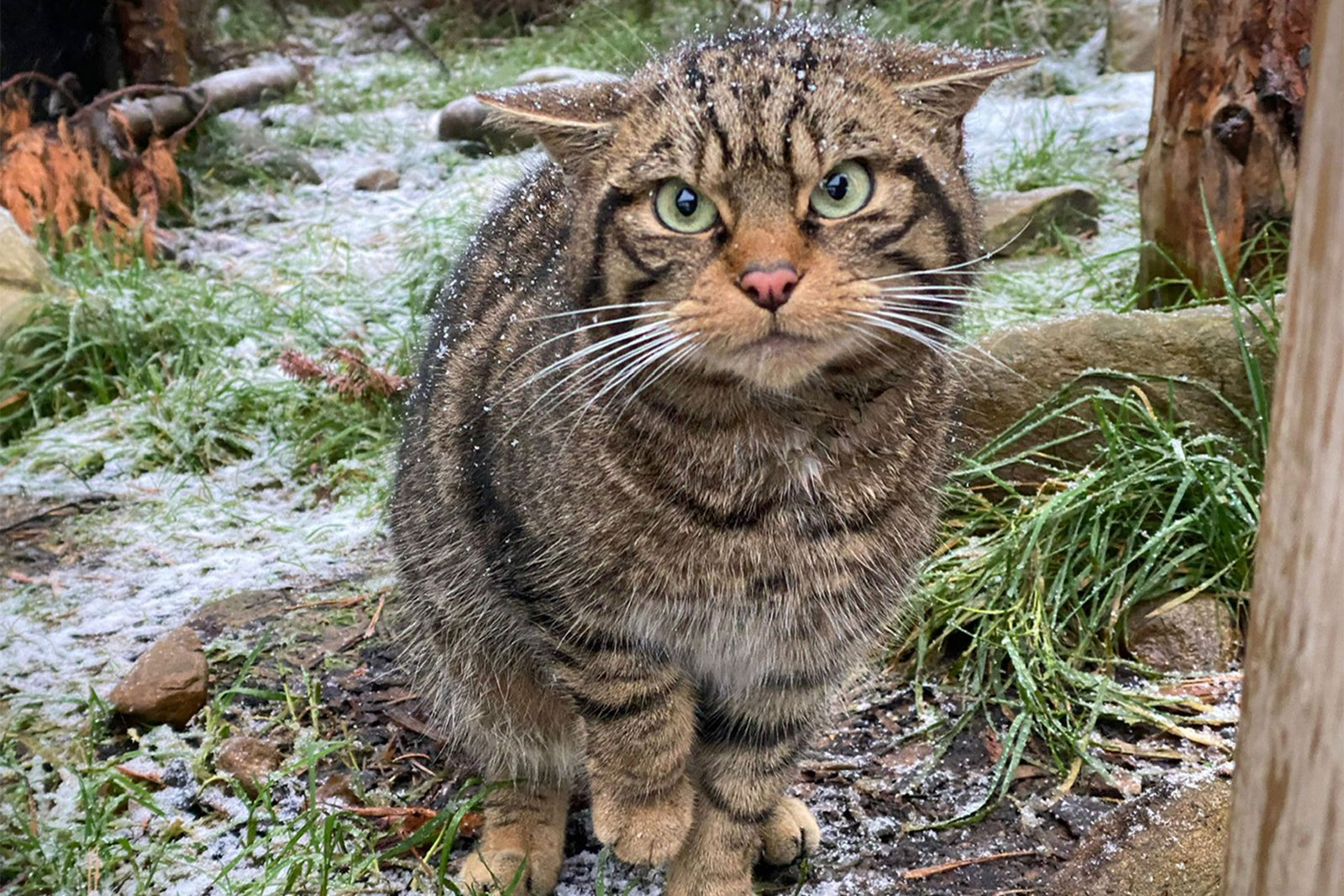Wildcats, a different species from your domestic pet cats at home, are Britain’s last remaining native wild felid. With their distinctly ringed, blunt, bushy tails, these charismatic animals are Scotland’s very own Highland tigers.
Once widespread throughout Britain, the species is now on the brink of extinction in Scotland. A sad history of habitat loss, persecution and, more recently, breeding with domestic cats, has forced the Highland tiger to a point where the population is no longer viable. This means that the extinction of this iconic animal is highly likely without a carefully managed conservation breeding programme carrying out releases into the wild.
Saving Wildcats was set up to do just that. We are a European partnership project dedicated to Scottish wildcat conservation and recovery, aiming to prevent the extinction of wildcats in Scotland by breeding and releasing them into the wild. Located at the Royal Zoological Society of Scotland’s Highland Wildlife Park near Aviemore in the Scottish Highlands, this project builds on decades of research and experience and has already established Britain’s first dedicated conservation breeding for release centre (CBRC). At this centre, expert animal keepers, vets and scientists are working together to release wildcats into specially selected sites in the Cairngorms National Park from 2023.
The preparations for this release are huge, not least carefully managing 16 wildcats who call the CBRC their home. It’s currently breeding season, and our wildcats have been showing encouraging signs of mating behaviour in their large and natural enclosures.
We hope that these wildcats including Droma (pictured) will become parents this spring. The kittens born in our centre this year will be the first to be released into the wild next year. Alongside this work, our dedicated field team are surveying potential release sites to make sure the chosen areas are suitable for the wildcats to thrive in once released.

This exciting work means that we’re always in the snow, rain and mud, and our entire team live in their Muck Boots. Whether we’re feeding the wildcats in their enclosures or walking through a lot of wet and challenging habitats to look for signs of voles in potential release sites (a favourite wildcat snack!), our Muckmaster Tall and Derwent II Short Boots keep our feet comfortable and dry.
We’re delighted to be sharing such an important conservation project with a new audience, who know all too well the importance of working in the muck. To find out more about our work, visit www.savingwildcats.org.uk and keep your eyes peeled for our next blog post coming soon!

About the Saving Wildcats Project
The Saving Wildcats project is led by the Royal Zoological Society of Scotland (RZSS) in collaboration with NatureScot (formerly Scottish Natural Heritage), Forestry and Land Scotland (FLS), The Cairngorms National Park Authority (CNPA), Norden’s Ark and Junta de Andalucía.
The project is funded with the contribution of the LIFE Programme of the European Union and the generous support of the Garfield Weston Foundation, The National Trust for Scotland, The People’s Trust for Endangered Species and The European Nature Trust.

Related Categories
Muckmaster Welly Boots
Derwent II Wellies




